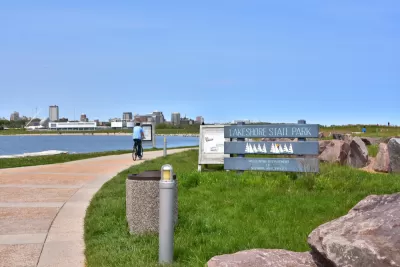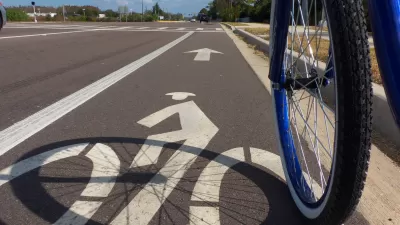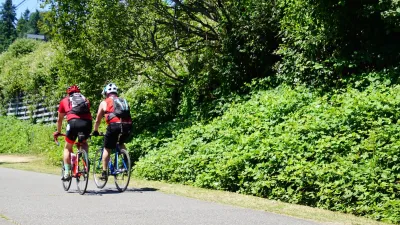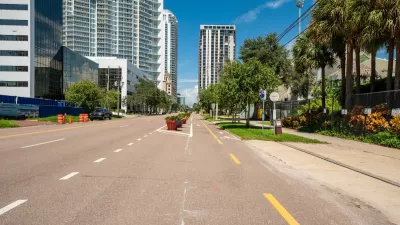Despite a rise in bicycling by residents, Wisconsin has dedicated disappointingly low amounts of funding and resources to bike infrastructure.

Writing in the Sun Prairie Star, Kirsten Finn of the Wisconsin Bike Federation decries the state’s low ranking in the League of American Bicyclists list of Bicycle Friendly States, which fell from number two to number 29 after the state repealed its Complete Streets policy. “Wisconsin currently ranks 49th out of 50 states in the amount of money we spend on biking and walking at just 85 cents per capita, Finn writes.
Finn recommends a few actions the state can take to improve its rankings and make roads safer for bicycling, such as investing more in bike infrastructure, updating the state’s expired bike plan, improving the condition of trails and access to a comprehensive, statewide network of trails, and recommitting to a statewide Complete Streets policy.
The Complete Streets policy was repealed in 2015 due to concerns about cost. But Finn argues that “streets built with the needs of all users in mind are a proactive investment in public health and safety and in the $2.52 billion-dollar economic engine that is Wisconsin’s cycling industry.”
“Cycling is good for Wisconsinites, and good for Wisconsin’s economy. The University of Wisconsin 2019 study concludes that cycling contributes over $2.52 billion dollars to our economy each year.”
FULL STORY: Wisconsin's Bicycle report card: Needs significant improvement

Alabama: Trump Terminates Settlements for Black Communities Harmed By Raw Sewage
Trump deemed the landmark civil rights agreement “illegal DEI and environmental justice policy.”

Planetizen Federal Action Tracker
A weekly monitor of how Trump’s orders and actions are impacting planners and planning in America.

The 120 Year Old Tiny Home Villages That Sheltered San Francisco’s Earthquake Refugees
More than a century ago, San Francisco mobilized to house thousands of residents displaced by the 1906 earthquake. Could their strategy offer a model for the present?

In Both Crashes and Crime, Public Transportation is Far Safer than Driving
Contrary to popular assumptions, public transportation has far lower crash and crime rates than automobile travel. For safer communities, improve and encourage transit travel.

Report: Zoning Reforms Should Complement Nashville’s Ambitious Transit Plan
Without reform, restrictive zoning codes will limit the impact of the city’s planned transit expansion and could exclude some of the residents who depend on transit the most.

Judge Orders Release of Frozen IRA, IIJA Funding
The decision is a victory for environmental groups who charged that freezing funds for critical infrastructure and disaster response programs caused “real and irreparable harm” to communities.
Urban Design for Planners 1: Software Tools
This six-course series explores essential urban design concepts using open source software and equips planners with the tools they need to participate fully in the urban design process.
Planning for Universal Design
Learn the tools for implementing Universal Design in planning regulations.
Clanton & Associates, Inc.
Jessamine County Fiscal Court
Institute for Housing and Urban Development Studies (IHS)
City of Grandview
Harvard GSD Executive Education
Toledo-Lucas County Plan Commissions
Salt Lake City
NYU Wagner Graduate School of Public Service





























